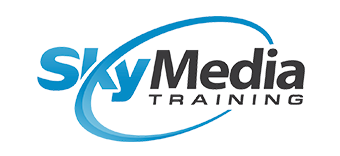CASA Drones Australia: What Commercial Drone Pilots Need to Know
Operating drones in Australia involves more than just technical know-how; it requires compliance with strict regulatory frameworks. The Civil Aviation Safety Authority (CASA) oversees drone operations, ensuring safety for both manned and unmanned aircraft. This guide provides an in-depth look at CASA drones regulations in Australia and explores the path to becoming a certified commercial drone operator.
Understanding CASA and Its Role
What Is CASA?
CASA, or the Civil Aviation Safety Authority, is the regulatory body responsible for ensuring aviation safety in Australia. This includes overseeing drones, also known as remotely piloted aircraft systems (RPAS). CASA establishes guidelines to minimise risks associated with drone operations, ensuring the safety of people, property, and the broader aviation environment.
Why Are CASA Regulations Important?
Drone technology has rapidly advanced, and with increased usage, the potential for accidents or misuse has grown. CASA’s regulations serve several purposes:
- Preventing Airspace Conflicts: Ensuring drones do not interfere with manned aircraft.
- Protecting Public Safety: Reducing risks of injury or property damage.
- Maintaining Privacy: Safeguarding individuals from unauthorised surveillance.
Key CASA Drones Regulations in Australia
Whether you’re flying for fun or profit, certain rules apply universally to all drone operators.
1. Maximum Altitude Limit
Drones must not exceed an altitude of 120 metres (400 feet) above ground level. This rule prevents potential conflicts with manned aircraft operating at higher altitudes.
2. Distance from People
You must maintain at least 30 metres from people not involved in the drone operation. Flying over crowds, such as at sporting events or public gatherings, is strictly prohibited.
3. No-Fly Zones
Certain areas are designated as no-fly zones, including:
- Controlled airspace around airports
- Military zones
- Emergency zones (e.g., during bushfires or police operations)
- National parks
CASA provides a drone safety app to help operators identify these restricted areas.
4. Visual Line of Sight (VLOS)
Operators must always keep their drones within visual line of sight. This means you should be able to see the drone with your own eyes without using binoculars or other visual aids.
5. Daylight Operations Only
Drones are generally restricted to daylight operations unless CASA grants specific permission.
Commercial Drone Operations: The Need for Certification
If you intend to use drones for commercial purposes—whether it’s capturing aerial footage for real estate or conducting agricultural surveys—you’ll need proper certification. CASA requires the following for commercial drone operators:
Remote Pilot Licence (RePL)
The RePL is a critical certification for commercial drone pilots. It validates your knowledge of drone operations and your ability to fly safely within CASA’s regulatory framework.
Operator’s Certificate (OC)
In addition to the RePL, businesses providing drone services must hold an Operator’s Certificate (OC). This certification ensures the organisation adheres to operational safety and compliance standards.
How to Obtain a Remote Pilot Licence (RePL)
Step 1: Meet the Basic Requirements
Before enrolling in an RePL course, you must meet certain prerequisites:
- Age: You must be at least 16 years old.
- Aviation Reference Number (ARN): This unique identifier is required for all aviation-related applications.
- English Proficiency: You should have a good understanding of English to comprehend course material and communicate effectively during operations.
Step 2: Enrol in a CASA-Approved RePL Course
SkyMedia Training offers a comprehensive RePL course tailored to CASA’s standards. Our course combines theoretical knowledge with practical skills to prepare you for safe and legal drone operations.
Theoretical Training:
Covers essential topics such as:
- Air law and CASA regulations
- Meteorology and its impact on drone operations
- Navigation and risk management
Practical Training:
Includes hands-on flying sessions under expert supervision. You’ll learn how to:
- Operate drones in various conditions
- Handle emergencies and equipment malfunctions
- Plan and execute complex flight missions
Step 3: Complete the Final Assessments
At the end of the course, you’ll need to pass a written exam and a practical flight test. These assessments ensure you’ve mastered both the theoretical and practical aspects of drone operations.
Step 4: Submit Your Application to CASA
Once you’ve successfully completed the course, your training provider will submit your RePL application to CASA. Upon approval, you’ll receive your certification, allowing you to legally operate drones for commercial purposes.
Compliance for Certified Operators
Obtaining an RePL is just the beginning. Staying compliant with CASA regulations is an ongoing responsibility.
Flight Logging
Maintaining a detailed logbook of your drone operations is crucial. Include information such as:
- Date and location of flights
- Flight duration
- Weather conditions
- Purpose of the operation
Keeping Up with Regulatory Changes
CASA periodically updates its regulations to address emerging technologies and risks. Regularly reviewing CASA’s updates ensures you remain compliant.
Insurance
While not legally required, having drone insurance is highly recommended. It provides coverage for damages or liabilities arising from your operations, offering peace of mind to both you and your clients.
Industries That Benefit from CASA Drones
Certified drone operators are in high demand across various industries. Some of the key sectors include:
- Film and Television: Capture stunning aerial shots for movies, commercials, and TV shows.
- Real Estate: Provide dynamic visuals of properties, enhancing marketing efforts.
- Agriculture: Monitor crops, assess soil health, and improve yields.
- Construction and Infrastructure: Conduct site surveys, track progress, and inspect hard-to-reach areas.
- Emergency Services: Support search and rescue missions, disaster assessments, and more.
SkyMedia Training: Your Path to Certification
SkyMedia Training stands out as a premier provider of drone training in Australia. Our RePL course not only equips you with the necessary skills but also ensures you understand the importance of compliance in your operations.
With experienced instructors, a comprehensive curriculum, and flexible learning options, SkyMedia Training is your trusted partner in achieving professional success as a certified drone operator.
